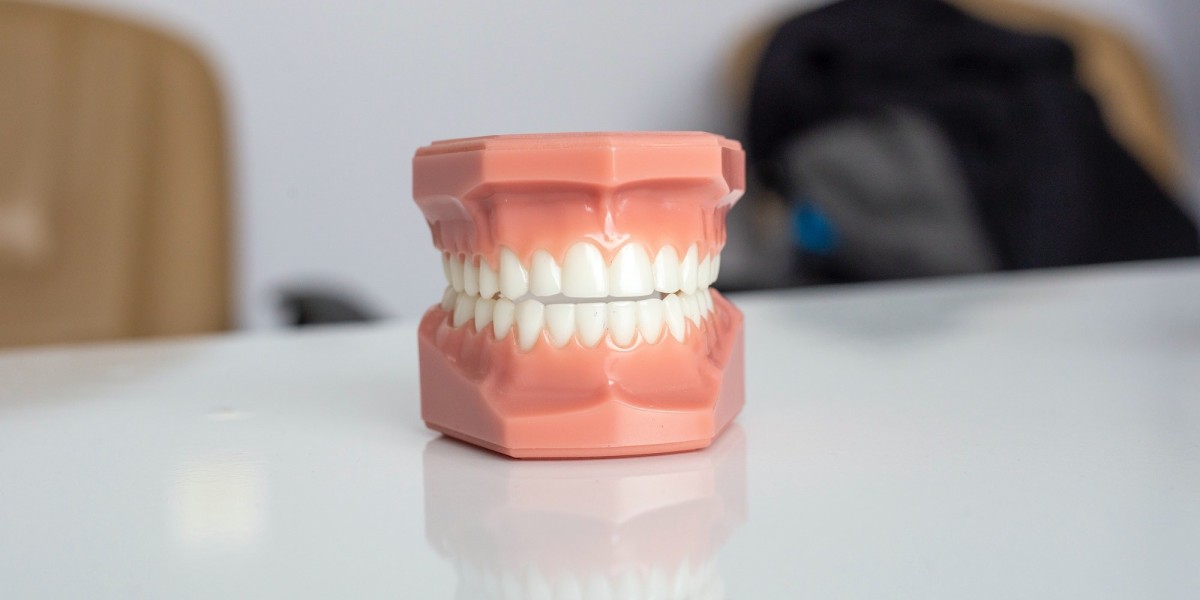Denture pain is a common concern for many people who rely on prosthetic teeth to restore their smile and oral function. Whether you’re new to wearing dentures or have been using them for years, experiencing discomfort can be frustrating and impact your daily life. For individuals using Teeth Dentures in Dubai, understanding the possible causes of denture pain is key to finding effective relief and ensuring long-term comfort. This article explores the most common reasons dentures cause pain and offers helpful tips for managing and preventing these issues.
Poor Denture Fit:
One of the leading causes of denture pain is poor fit. Over time, the shape of your gums and jawbone changes, especially after tooth loss, which can cause dentures to become loose, tight, or uneven. Ill-fitting dentures can rub against sensitive tissues and create sore spots or ulcers.
Signs of poor fit include:
Persistent sore spots on gums
Dentures slipping or clicking when talking or eating
Difficulty chewing or speaking clearly
Pain or discomfort after wearing dentures for a short time
If your dentures no longer fit properly, consult your dentist for adjustments, relining, or a new fitting to restore comfort.
Gum Inflammation and Infection:
Inflammation and infection of the gums under your dentures can cause significant pain and irritation. Denture stomatitis, a common fungal infection, often results from prolonged denture wear without proper cleaning or nighttime removal.
Symptoms to watch for:
Red, swollen, or tender gums
Burning sensation or soreness
White patches or lesions on the gums
Bad breath or unpleasant taste
Maintaining good oral hygiene, removing dentures overnight, and using antifungal treatments when recommended can help control and prevent infections.
Pressure Sores and Ulcers:
Continuous pressure from dentures on certain areas of the gums can lead to painful sores and ulcers. These are often caused by uneven pressure distribution due to poorly shaped dentures or rough edges on the prosthetic.
Common causes of pressure sores:
Denture edges that are too sharp or rough
Uneven denture base causing localized pressure
Extended denture wear without breaks
Allergic reactions to denture materials
If you notice persistent pain in one area, seek dental advice. Adjustments, smoothing of edges, or temporary relief products can help.
Bone Resorption and Changes in Jaw Shape:
After tooth extraction, the jawbone naturally shrinks or resorbs over time, which affects how dentures fit. This gradual bone loss can cause dentures to become unstable and painful.
Effects of bone resorption include:
Reduced denture retention and stability
Changes in facial structure affecting fit
Increased soreness and irritation
Difficulty chewing and speaking
Regular dental visits to monitor bone health and timely denture relines or replacements are essential to manage this issue.
Allergic Reactions to Denture Materials:
Though rare, some people may experience allergic reactions to the materials used in their dentures, such as acrylic, metal, or adhesives. These reactions can cause redness, itching, and pain.
Signs of allergy may include:
Persistent itching or burning in the mouth
Swelling or redness of oral tissues
Rash or blistering on gums or surrounding skin
Sensitivity worsening over time
If you suspect an allergy, discuss alternative materials or products with your dentist to reduce discomfort.
Poor Oral Hygiene:
Inadequate cleaning of dentures and the mouth can lead to bacterial buildup, plaque formation, and gum irritation—all of which contribute to denture pain.
Consequences of poor hygiene include:
Accumulation of food particles under dentures
Increased risk of gum infections and inflammation
Bad breath and unpleasant taste
Development of fungal infections like candidiasis
To prevent these issues, clean your dentures daily with appropriate products and maintain regular oral hygiene routines.
Denture Damage or Wear:
Over time, dentures can develop cracks, chips, or worn-down areas that cause discomfort when worn. Damaged dentures may have rough edges or lose their proper shape, resulting in pain.
Warning signs of denture damage:
Visible cracks or chips on the denture surface
Dentures feeling loose or unstable
New areas of soreness or irritation
Difficulty chewing or speaking compared to before
If you notice any damage, have your dentures inspected and repaired by a professional to avoid further complications.
Using Poor-Quality Denture Adhesives:
Some denture wearers rely on adhesives to improve fit and retention. However, using poor-quality or excessive adhesive can cause irritation and soreness.
Problems linked to adhesives include:
Gum irritation or allergic reactions
Residue buildup leading to infections
Difficulty cleaning dentures properly
Temporary discomfort after application
Choose dentist-recommended adhesives and use them sparingly, ensuring thorough cleaning of dentures and gums.
Tips to Manage and Prevent Denture Pain:
Visit your dentist regularly for check-ups and denture maintenance
Remove dentures overnight to allow gums to rest
Clean dentures and mouth thoroughly every day
Use only denture-specific cleaning products and brushes
Avoid homemade adjustments or modifications to dentures
Stay hydrated to prevent dry mouth and irritation
Report any persistent pain or discomfort promptly
When to See a Dentist:
While some minor discomfort may be normal when adjusting to new dentures, persistent or severe pain is a sign you need professional help. Early intervention can prevent complications and improve your quality of life.
Seek dental care if you experience:
Unrelenting soreness or ulcers lasting more than a few days
Difficulty eating or speaking due to pain
Signs of infection like swelling, redness, or discharge
Loose or broken dentures causing discomfort
For users of Teeth Dentures in Dubai, many dental clinics offer specialized services to address denture pain and provide personalized treatment plans.
Final Thoughts:
Denture pain is often avoidable or manageable with proper care and professional support. Identifying the cause—whether it’s poor fit, infection, or material sensitivity—is the first step toward relief. If you experience discomfort with your Teeth Dentures in Dubai, don’t ignore the symptoms. Schedule a consultation with your dentist to explore solutions that restore comfort and help you enjoy your smile with confidence. Regular maintenance, good hygiene, and timely adjustments will ensure your dentures serve you well for years to come.








